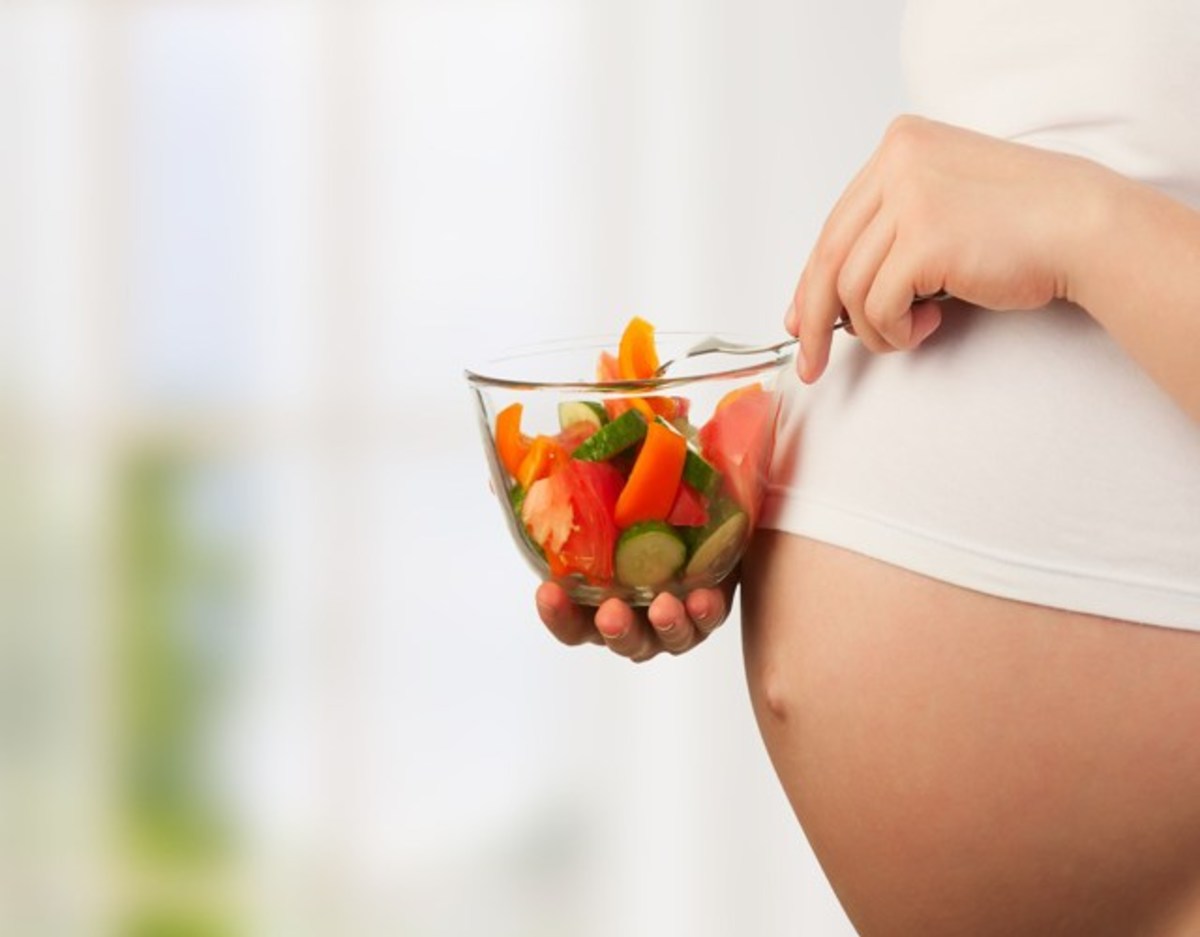Low Sodium Diet For Pregnancy
Introduction
During pregnancy, maintaining a balanced and nutritious diet is crucial for the health and development of both the mother and the growing fetus. Among the dietary considerations, managing sodium intake is particularly important due to its potential impact on maternal health and pregnancy outcomes. A low sodium diet during pregnancy aims to mitigate risks associated with high blood pressure, edema, and other complications that may arise.
Sodium, a mineral found naturally in many foods and added to others, plays a vital role in maintaining fluid balance and nerve function in the body. However, excessive sodium consumption can lead to hypertension, or high blood pressure, which poses serious health risks during diet pregnancy. Elevated blood pressure increases the likelihood of complications such as preeclampsia, gestational diabetes, and preterm birth, endangering both maternal and fetal well-being.
Adopting a low sodium diet involves reducing the intake of processed foods, which are often high in sodium due to added salt and preservatives. Instead, focusing on fresh, whole foods such as fruits, vegetables, lean proteins, and whole grains can help limit sodium intake while providing essential nutrients for a healthy pregnancy. Additionally, reading food labels carefully and avoiding high-sodium condiments and seasonings are integral parts of adhering to a low sodium diet during pregnancy.
What is the daily sodium limit for pregnancy?
Sodium. Sodium intake recommendations both before and during pregnancy are the same as those for the general population: 3000 milligrams a day. In some cases, there are medical reasons to restrict the amount of sodium in your diet. Talk with your doctor if you are unsure about your sodium intake.
During pregnancy, it’s essential to maintain a healthy diet to support both the mother’s well-being and the development of the growing baby. One crucial aspect of this diet is managing sodium intake. The daily sodium limit for pregnancy typically falls within the range of 1,500 to 2,300 milligrams per day, as recommended by healthcare professionals.
Excessive sodium intake during pregnancy can lead to various complications, including high blood pressure (hypertension), swelling (edema), and increased risk of preeclampsia. These conditions can pose significant risks to both maternal and fetal health, potentially leading to preterm birth or other complications.
To stay within the recommended sodium limits, pregnant individuals should be mindful of their dietary choices. This includes avoiding processed and packaged foods, which often contain high levels of sodium. Instead, focus on fresh, whole foods such as fruits, vegetables, lean proteins, and whole grains. Cooking meals at home allows better control over sodium levels, as opposed to eating out where sodium content can be difficult to gauge.
What foods are naturally low in sodium?
Fresh, frozen or dried fruits: Berries, apples, bananas, pears, etc. Grains and beans: Dried beans, brown rice, farro, quinoa and whole wheat pasta. Starchy vegetables: Potatoes, sweet potatoes, butternut squash and parsnips. Fresh or frozen meat and poultry: Chicken, turkey, beef or pork.
When it comes to maintaining a balanced diet, keeping sodium intake in check is crucial for overall health. Excessive sodium consumption is linked to various health issues, including high blood pressure, heart disease, and stroke. Fortunately, there are plenty of naturally low-sodium foods that can help individuals manage their salt intake while still enjoying flavorful meals.
Fresh fruits and vegetables are excellent choices for those looking to reduce their sodium intake. These include options like apples, bananas, berries, spinach, kale, broccoli, carrots, and bell peppers. Not only are these foods low in sodium, but they also provide essential vitamins, minerals, and dietary fiber.
Whole grains such as brown rice, quinoa, oats, and barley are also naturally low in sodium and provide sustained energy without the added salt found in processed grains. Additionally, incorporating legumes like beans, lentils, and chickpeas into meals adds protein, fiber, and flavor with minimal sodium content.
Why is sodium bad for pregnancy?
One large study found that pregnant women who ate more than 3,700 milligrams of sodium per day had a 54 percent greater risk of high blood pressure during pregnancy and a 20 percent increased risk of developing preeclampsia than those who ate less than 2,600 milligrams of sodium daily.
During pregnancy, it’s crucial to pay attention to dietary intake to ensure the health and development of both the mother and the unborn baby. Sodium, while an essential mineral for bodily functions, can become problematic when consumed in excess during pregnancy.
High sodium intake can lead to several adverse effects, particularly during pregnancy, including increased risk of high blood pressure or hypertension. Elevated blood pressure during pregnancy, known as gestational hypertension, can pose serious risks such as pre-eclampsia, a condition characterized by high blood pressure and organ damage, which can endanger both the mother and the fetus.
Excessive sodium intake may also contribute to swelling or edema, a common discomfort during pregnancy. Edema occurs when excess fluid accumulates in tissues, leading to swelling, particularly in the hands, feet, and ankles.
Does salt increase BP in pregnancy?
On the contrary, a sodium overload of 3–6 g per day resulted in lower blood pressure in a pregnant woman with chronic hypertension. In contrast to the non-pregnant state, increasing salt intake was shown to reduce blood pressure in pregnant women.
During pregnancy, maintaining optimal blood pressure levels is crucial for both the mother’s health and the developing baby. While salt is an essential nutrient, excessive consumption can contribute to hypertension or high blood pressure (BP), which poses risks during pregnancy. However, the relationship between salt intake and BP in pregnancy is complex.
Studies have shown that excessive salt intake can lead to fluid retention and increased blood volume, potentially raising blood pressure levels. This effect may be more pronounced in individuals who are sensitive to sodium. Pregnant women already experience physiological changes that can impact blood pressure, such as increased blood volume and hormonal fluctuations. Therefore, excessive salt consumption could exacerbate these changes and elevate BP further.
However, it’s essential to note that not all pregnant women will experience a significant increase in BP due to salt intake. Factors such as genetics, pre-existing conditions like gestational hypertension or preeclampsia, and overall dietary habits play crucial roles.
Can too much sodium hurt my baby?
Sodium intake should vigilantly be monitored in infants since their excretory system eliminate sodium with less efficiency than that of adults. Consequently, excess sodium may result in immediate health implications for the young infant, as well as affecting their long-term health status.
During pregnancy, maintaining a balanced diet is crucial for both the mother’s health and the baby’s development. Excessive sodium intake can pose risks to both. While sodium is essential for bodily functions, consuming too much of it can have negative effects, especially during pregnancy.
High sodium intake can lead to fluid retention and swelling, commonly known as edema, which can be uncomfortable for pregnant women. Moreover, excessive sodium consumption may increase blood pressure, putting strain on the mother’s cardiovascular system and potentially leading to complications such as preeclampsia.
For the baby, excessive sodium intake can also be harmful. It may lead to intrauterine growth restriction (IUGR) or low birth weight, which can impact the baby’s health and development both in utero and after birth. Additionally, high sodium levels in the mother’s bloodstream can affect the baby’s kidneys, as they are not fully developed during pregnancy and may struggle to process excess sodium.
What are the symptoms of low sodium in pregnancy?
Maternal symptoms and signs may include headache, nausea, seizures and cerebral oedema. As equilibration of maternal-fetal sodium levels occurs across the placenta this can result in neonatal hyponatraemia which is associated with jaundice, tachypnoea, seizures and neonatal intensive care admission.
During pregnancy, maintaining adequate sodium levels is crucial for both the mother’s health and the development of the baby. When sodium levels drop below normal, it can lead to a condition known as hyponatremia, which can pose serious risks. Here are some common symptoms of low sodium levels in pregnancy:
Fatigue: Low sodium levels can cause extreme tiredness and fatigue, which may interfere with daily activities and increase the risk of accidents.
Nausea and vomiting: Pregnant women with low sodium levels may experience persistent nausea and vomiting, which can lead to dehydration and further exacerbate sodium imbalance.
Headaches: Headaches are a common symptom of hyponatremia. These headaches may range from mild to severe and can be persistent.
Is Milk high in sodium?
Conclusion: Liquid and powdered whole cow milk have high sodium content, and the content per portion is higher in liquid milk than in powdered milk.
Milk, in its purest form, does not naturally contain a significant amount of sodium. However, some processed milk products may have added sodium for various reasons such as taste enhancement, preservation, or as a stabilizer. The sodium content in milk can vary depending on factors like the brand, type (whole, skim, low-fat), and any additional ingredients.
Typically, unprocessed cow’s milk contains around 98 milligrams of sodium per 100 grams, which is considered a low sodium content. However, flavored or sweetened milk products like chocolate milk or some types of cheese can have higher sodium levels due to added ingredients.
For individuals monitoring their sodium intake, it’s essential to check nutrition labels carefully, especially on processed dairy products. Opting for plain, unsweetened milk varieties or alternatives like almond or soy milk can be a way to minimize sodium consumption.
How can I avoid salt during pregnancy?
Avoiding adding salt automatically to food while you’re cooking and once it is prepared. And taste your food before seasoning – it may not need any additional salt. Try seasoning your food with pepper only – it works well with almost any dish.
During pregnancy, it’s crucial to maintain a balanced diet for both the mother’s health and the baby’s development. While salt is an essential nutrient, excessive intake can pose risks, including high blood pressure and fluid retention. Here are some tips to help you reduce salt intake during pregnancy:
Read Labels: Be mindful of packaged and processed foods, as they often contain high levels of sodium. Opt for low-sodium or sodium-free options whenever possible.
Cook from Scratch: Prepare meals at home using fresh ingredients. This allows you to control the amount of salt added during cooking.
Use Herbs and Spices: Enhance the flavor of your dishes with herbs, spices, and other flavorings instead of salt. Experiment with garlic, lemon, ginger, and various herbs to add taste without the need for extra salt.
Limit Eating Out: Restaurant meals tend to be high in sodium. When dining out, choose restaurants that offer healthier options or ask for your dish to be prepared with less salt.
Conclusion
Adopting a low sodium diet during pregnancy offers significant benefits for both the mother and the developing fetus. By minimizing sodium intake, expecting mothers can reduce the risk of complications such as high blood pressure, gestational hypertension, and preeclampsia, which are common concerns during pregnancy. Additionally, a low sodium diet promotes overall cardiovascular health, contributing to a healthier pregnancy and potentially reducing the likelihood of long-term health issues for both the mother and child.
Furthermore, maintaining a balanced and nutritious diet during pregnancy is essential for the proper development of the fetus and can positively impact maternal health. While sodium is necessary for bodily functions, excessive intake can lead to adverse effects, particularly for pregnant women who are more susceptible to its negative consequences.
By prioritizing fresh, whole foods and avoiding processed and high-sodium foods, pregnant women can better manage their sodium intake. Consulting with a healthcare provider or nutritionist to develop a personalized dietary plan tailored to individual needs and preferences is advisable.



